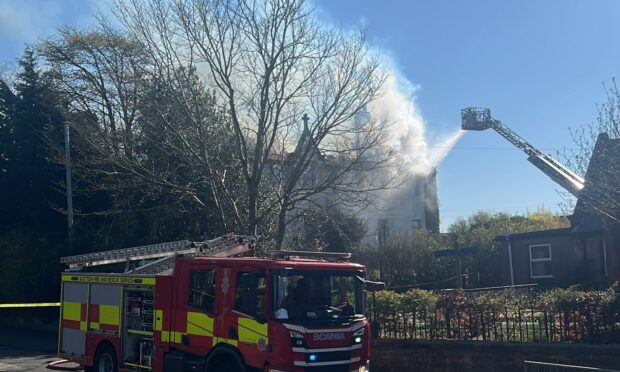More than half of Fife’s school kitchens haven’t been inspected for three years.
In one case, a primary school last had an inspection 16 years ago.
Mid Scotland and Fife Conservative MSP Liz Smith said it was “clearly not good enough”.
Statistics from the Food Standards Agency has shown that 52% of Fife Schools haven’t been inspected since 2015 and 16% of schools have gone nearly a decade without seeing an inspector.
Food hygiene certificates do not expire, but some employers – such as the NHS – require them to be renewed regularly.
However, it is recognised industry practice for them to be renewed every three years, so that food handlers keep up to date with the latest legislation.
In Fife, 86 out of the 163 schools listed have not been inspected since 2015.
A further 27 have not been inspected since 2009, nearly a decade ago.
According to the statistics, 31 nurseries in the kingdom which have been assessed in the past two years require improvement in their food hygiene.
“Ensuring that people preparing food for the public are up to date with the latest food hygiene laws and best practice is incredibly important,” said Ms Smith.
“Therefore, the fact that over half of Fife school kitchens haven’t been inspected since 2015 is disappointing.
“While there is no requirement for this to be happen, you would hope that inspections are conducted on a semi-regular basis.
“Furthermore, to have 16% of kitchens go without an inspection for 10 years is concerning.
“The last inspection for some schools came in 2002, which is clearly not good enough.”
The politician added that while there was no suggestion that the schools were not complying with the latest laws, regular checks were important in ensuring that the highest standards were maintained.
She added: “I hope that things improve in Fife.”
Across Fife, Craigrothie Primary topped the list of those schools which have waited longest for an inspection. The school near Cupar was last visited in 2002.
Environmental health service manager Lisa McCann said: “Environmental health focus our limited resources on the areas of highest risk.
“This risk based approach to inspections takes account of the activities of the premises and their previous compliance levels.
“In some cases, educational establishments are classed as low risk because they are limited to being servery units only which means that there is no food production on site.”
And she pointed out some listed in the report had since closed.
Officers have worked centrally with colleagues from the education and facilities management service to ensure that their premises have appropriate food safety management systems.
Services carry out internal operational monitoring, with some premises receiving a third party audit.










